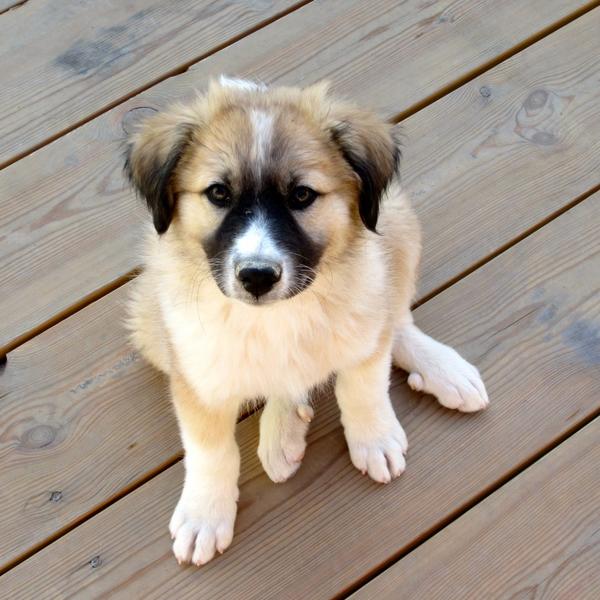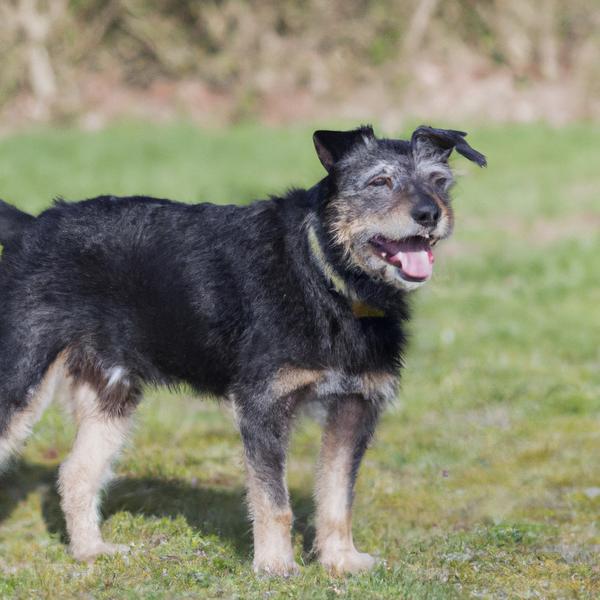Kuchi vs. Brusston: Breed Differences and Similarities
Hypoallergenic
Are Kuchis or Brusstons hypoallergenic, or neither?
Unfortunately, neither Kuchi nor Brusston are hypoallergenic, which may not make them the best choice for dog lovers who suffer from pet allergies.
Temperament
What are the personalities of Kuchi and Brusston dogs?
Aloof
Clownish
Dignified
Happy
Independent
Playful
Alert
Sensitive
Intelligent
Friendly
Affectionate
Lively
Gentle
Inquisitive
Aggressive
Selfish
Watchful
Companionable
Shedding Level
Do Kuchis shed more than Brusstons, or which breed sheds more, Kuchis or Brusstons?
Kuchis are moderate shedders, but regular brushing can reduce shedding and maintain coat health.
Brusstons are low shedding dogs, requiring minimal coat care.
Ancestry
What are the origins of Kuchi and Brusston breeds?
Molosser-type Dogs
Boston Terrier and Brussels Griffon
Breed recognition
Which kennel clubs recognize/register Kuchi and Brusston?
Unknown
ACHC = American Canine Hybrid Club
DRA = Dog Registry of America, Inc.
Date of Birth
When were Kuchi and Brusston breeds first developed?
Unknown
Unknown
Eye Color Possibilites
What are the eye colors of Kuchi and Brusston dogs?
Brown
Brown
Nose Color Possibilites
What are the natural nose colors of Kuchi and Brusston?
Black
Brown
Black
Coat Color Possibilites
What are the natural colors of the coat for Kuchi and Brusston breeds?
Black
Gray
Red
Fawn
Black
White
Brown
Coat Length
What is the typical coat length for Kuchi and Brusston breeds?
Kuchis have longer coats compared to most dogs.
Brusstons are known for their coat length.
Coat Density
What is the density of the coat of Kuchi and Brusston?
Coat Texture
What is the hair texture of Kuchi and Brusston?
Straight
Wiry
Litter Size
What is the usual litter size for Kuchi and Brusston?
A Kuchi can have a litter of 12-13 puppies on average. However, it's worth noting that the size of the litters can vary greatly. Factors that can influence litter size include the health of the mother, breeding history, and genetics.
A Brusston can have a litter of 3-5 puppies on average. However, it's worth noting that the size of the litters can vary greatly. Factors that can influence litter size include the health of the mother, breeding history, and genetics.
Adaptability
Kuchis have average adaptability to changes in lifestyle and living environments compared to other breeds.
Brusstons are highly adaptable and versatile, making them excellent companions for families and individuals of all lifestyles.
Health Issues
Between Kuchi and Brusston, which breed is more prone to health problems?
Kuchi and Brusston breeds are generally considered to be healthy. However, like all breeds, they are susceptible to certain health issues and it is important to keep an eye out for them and address them with your veterinarian as needed.
Major Concerns
What are the major health concerns for Kuchi and Brusston breeds?
Hip And Elbow Dysplasia
Brachycephalic Syndrome
Minor Concerns
What minor health issues should be kept in mind when owning Kuchi and Brusston?
Bloat
Patellar Luxation
Deafness
Demodicosis
Cherry Eye
Progressive Retinal Atrophy
Cataracts
Glaucoma
Hemivertebrae
Hydrocephalus
Atopic Dermatitis
Tricuspid Valve Dysplasia
Cleft Lip or Palate
Occasional Tests
What occasional tests are recommended for Kuchi and Brusston breeds?
Yearly Physical Examination
OFA on hips and elbows
Blood Test
Hip X-Rays
Dna Test For Pk
Eye Examination
Physical Examination
Social Needs
Kuchi vs Brusston social needs comparison
Kuchi has average social needs and is less independent than other breeds.
Brusston has above average social needs and thrives with interaction with humans and other dogs.
Sleeping Need
Which of the two sleeps the most/least: Kuchi or Brusston?
Kuchis sleep less than other breeds but still need adequate sleep for good health.
Brusstons have moderate energy levels and typical sleep patterns of 12-14 hours per day.
Mouthiness
Mouthiness Comparison: Kuchi vs Brusston?
Roaming urge
Kuchi vs Labrador: Running away tendency?
Prey Drive
Kuchi or Brusston - which breed has a higher level of prey drive?
Past times
What are some enjoyable activities and ways to keep Kuchi and Brusston entertained?
Agility
Play dead, Walk, Keep away, Frisbee, Swim, Howling, Fetch, Speak, Shake, Tug-of-war
Activity Level
Which breed has higher energy, Kuchis or Brusstons?
Kuchis are medium-energy dogs and typically enjoy socializing and playing casual or even sustained games of chase with other dogs. They may also have occasional periods of barking or racing around the house.
Brusstons are high-energy dogs. They need mental as well as physical exercise. These dogs require a lot of your involvement and without it they can, and will, become problematic dogs.
Tolerance of being left alone
Walks per Week
How many miles should Kuchi or Brusston walk each week?
There's really no limit to how far you walk your dog as long as they're comfortable. For Kuchi, it's at least 10 miles / week. Just remember to build distance and stamina gradually over time.
There's really no limit to how far you walk your dog as long as they're comfortable. For Brusston, it's at least 9 miles / week. Just remember to build distance and stamina gradually over time.
Activity per Day
Do Kuchis or Brusstons require more exercise?
In general most Kuchis usually need at least 45 minutes of exercise daily. This can be spread across the day and include all sorts of high-energy activities, like walking, running and playing.
In general most Brusstons usually need at least 60 minutes of exercise daily. This can be spread across the day and include all sorts of high-energy activities, like walking, running and playing.
Grooming
Which breed is easier to maintain in terms of grooming, Kuchis or Brusstons?
The Kuchi has low grooming needs and is easy to maintain.
The Brusston requires an average amount of grooming compared to other breeds.
Brushing Frequency
What is the recommended brushing frequency for Kuchi and Brusston dogs?
Kuchi and Brusston should be brushed at least once a week. Of course, you can give them more frequent brushes if you find that they are still shedding a lot.
Brushing Tools
What brushing tools are used for Kuchis and Brusstons?
Pin Brush
Dematter
Deshedder
Nail Clipper
Slicker Brush
Comb
Scissors
Nail Clipper
Cups
How much food should be given to Kuchi or Brusston in cups?
For an average 88-176 pound (40 - 80 kg) Kuchi feed 3.4 cups daily. But, keep in mind, the amount you feed is going to be dependent on the quality of the food you are feeding.
For an average 10-25 pound (5 - 11 kg) Brusston feed 1 cups daily. But, keep in mind, the amount you feed is going to be dependent on the quality of the food you are feeding.
Daily Cost
Which breed has a higher daily cost, Kuchi or Brusston?
The average cost of a Kuchi is somewhere $3.90 - $4.20 per day.
The average cost of a Brusston is somewhere $1.10 - $1.40 per day.
Monthly Cost
Which breed has a higher monthly cost, Kuchi or Brusston?
The average per month expenses of a Kuchi is between $112 - $126. This makes an average of $1344 - $1512 per year. It will be on the higher side when the dog is still small because it will need more frequent visits to the vet, shots.
The average per month expenses of a Brusston is between $35 - $42. This makes an average of $420 - $504 per year. It will be on the higher side when the dog is still small because it will need more frequent visits to the vet, shots.
Sensitivity Level
How do Kuchi and Brusston compare in sensitivity?
These dog breeds are particularly attuned to its environment and the emotions of those around it. Kuchi and Brusston can be easily overwhelmed by loud noises, new environments, unfamiliar people, or animals. This dog breed is best suited for individuals or families who are patient, gentle, and understanding of its sensitive nature. It may also benefit from a calm and stable home environment, with a consistent routine and plenty of positive reinforcement training.
Apartment Friendly
Which breed is more apartment-friendly: Kuchi or Brusston?
The Kuchi is not suitable for apartments and requires a large yard to thrive. Pent-up energy in small spaces can lead to destructive behavior.
Brusstons make excellent apartment dogs, being fairly active indoors and not requiring a yard.
Child Friendly
Do Kuchis or Brusstons have a friendlier temperament towards children?
Kuchis are good with kids if socialized and trained from a young age.
Brusstons have an average level of friendliness towards children.
Senior-friendly
Which dog is more suitable as a pet for the elderly - Kuchi or Brusston?
Cat Friendly
Do Kuchi or Brusston breeds have a better compatibility with cats?
Kuchis are somewhat cat friendly and can be trained to get along with cats.
Brusstons are very friendly with cats and make great companions for them.
Dog Friendly
Which breed is more sociable with other dogs: Kuchi or Brusston?
Kuchis are average in their friendliness towards other dogs, and socialization can help.
Brusstons are friendly and active companions, and can be good family pets, though their friendliness towards other dogs may vary.
Pet friendly
How do Kuchi or Brusston dogs interact with other pets?
Stranger Friendly
Which breed is more friendly with strangers: Kuchi or Brusston?
Kuchis are quick to announce strangers and can be standoffish or suspicious.
Brusstons are friendly but may bark at strangers, and training is easy due to their intelligence.
Playfulness
Which breed is more playful between Kuchi and Brusston?
Kuchis are a playful breed that needs daily playtime to be happy.
Brusstons have an average level of playfulness, enjoying playtime like most dogs but not excessively so.
Trainability
How do the trainability levels of Kuchis and Brusstons compare?
Kuchis are usually easy to train but require consistency to fully obey commands.
Brusstons may require more time and patience to learn commands, but with consistency, they can be trained.
Compare Kuchi with other breeds
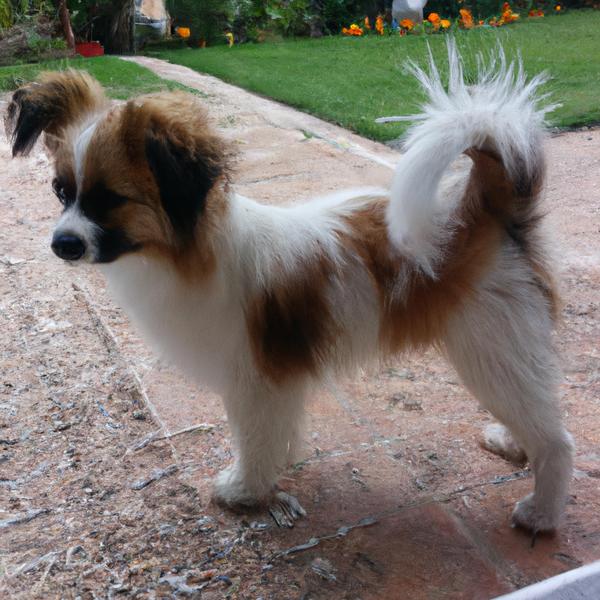
Papimo
Kuchi vs Papimo
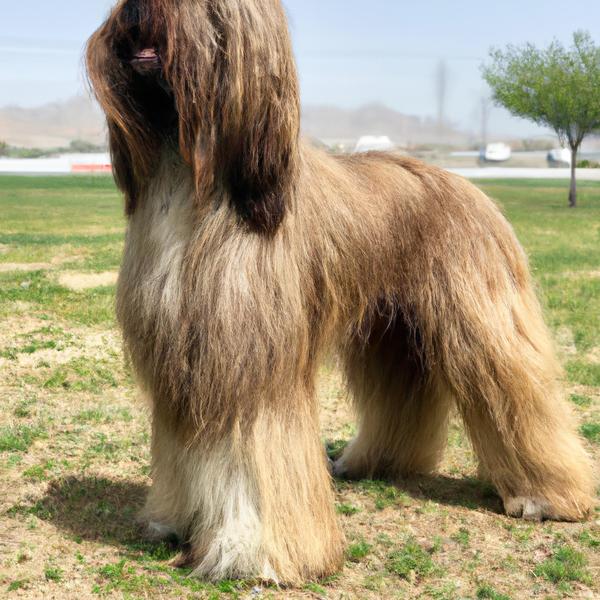
Afghan Chon
Kuchi vs Afghan Chon
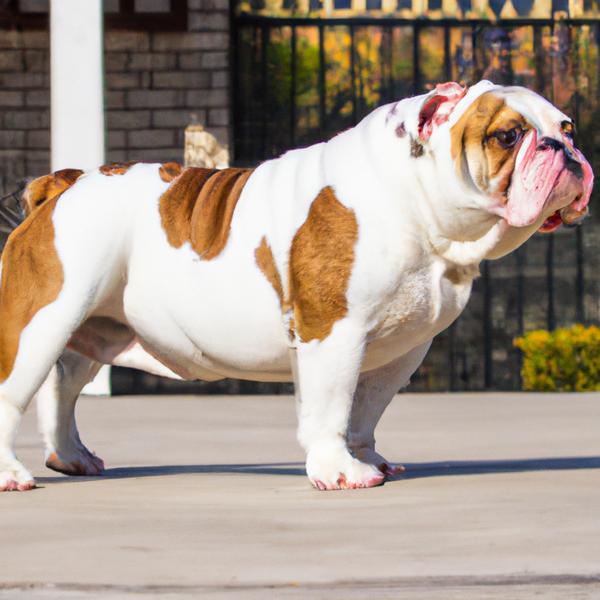
English Neo Bull
Kuchi vs English Neo Bull
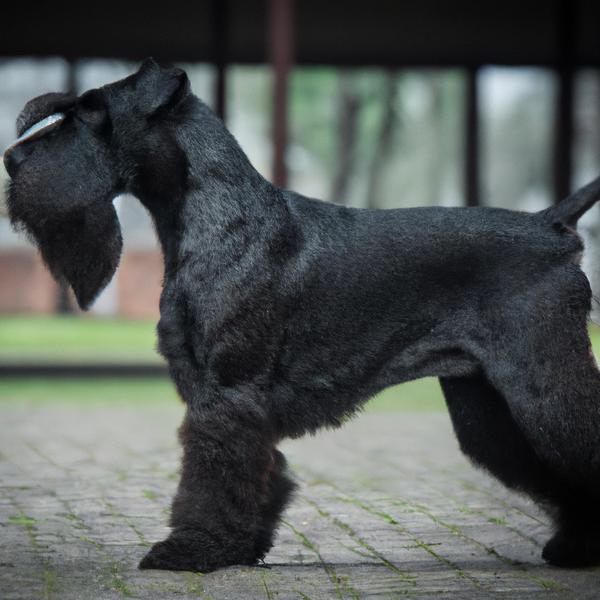
Giant Schnauzer Chin
Kuchi vs Giant Schnauzer Chin
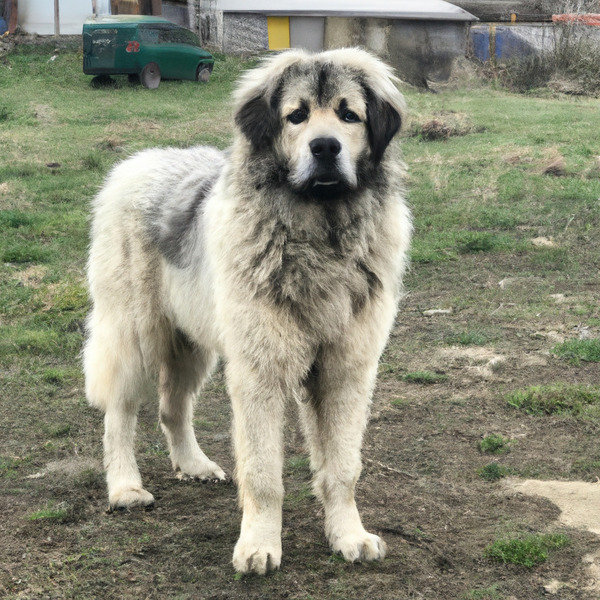
Carpathian Shepherd
Kuchi vs Carpathian Shepherd
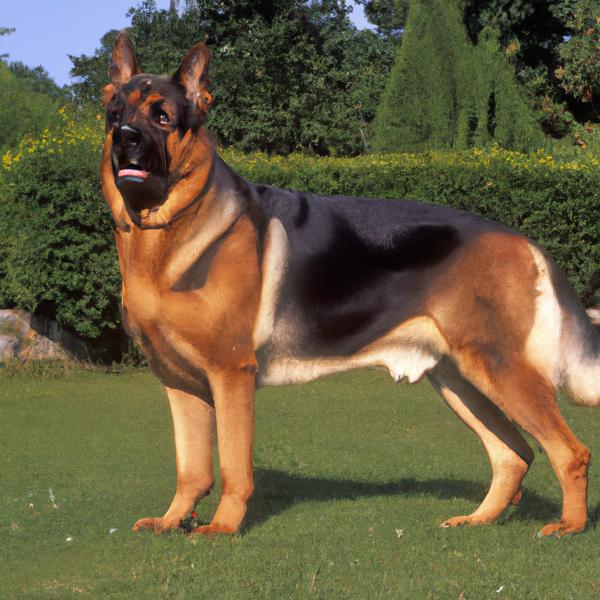
Germanees
Kuchi vs Germanees
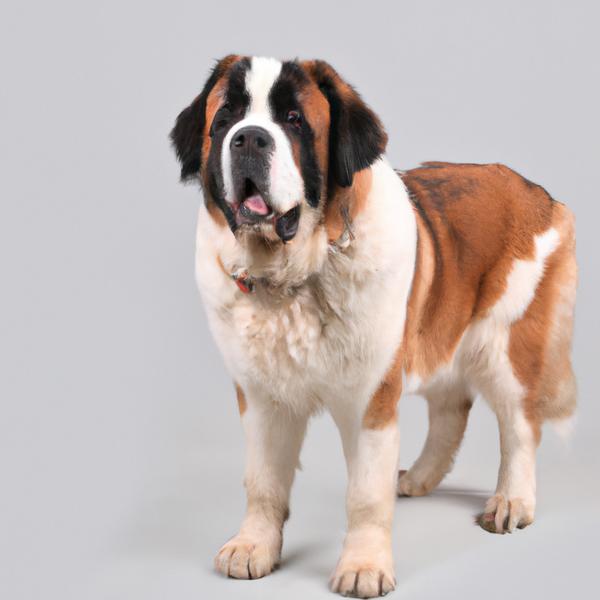
Saint Bernard
Kuchi vs Saint Bernard
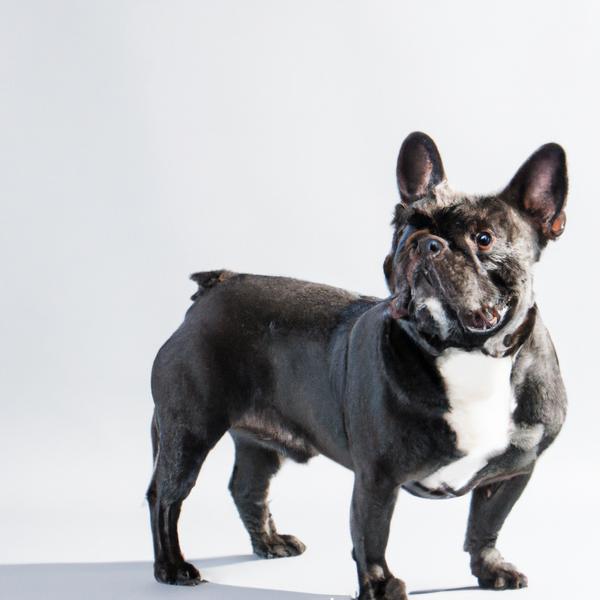
French Bull Jack
Kuchi vs French Bull Jack
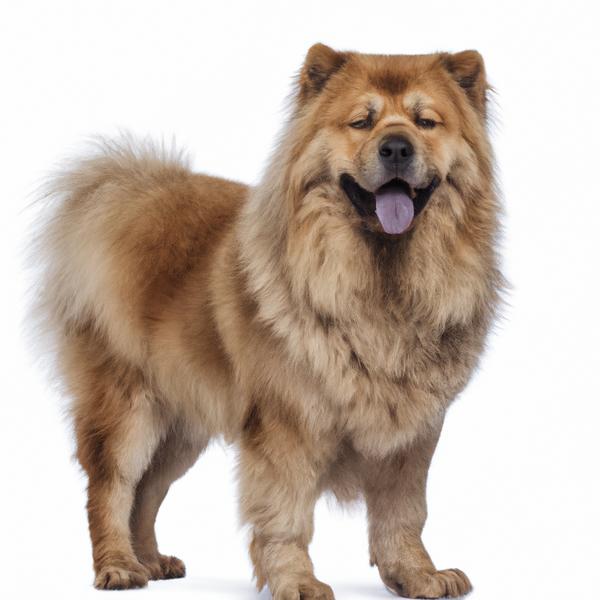
Cheenese
Kuchi vs Cheenese
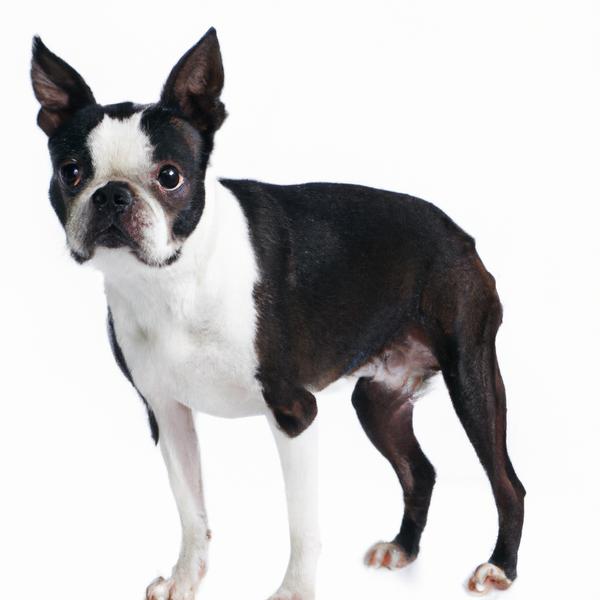
Boston Terrier
Kuchi vs Boston Terrier
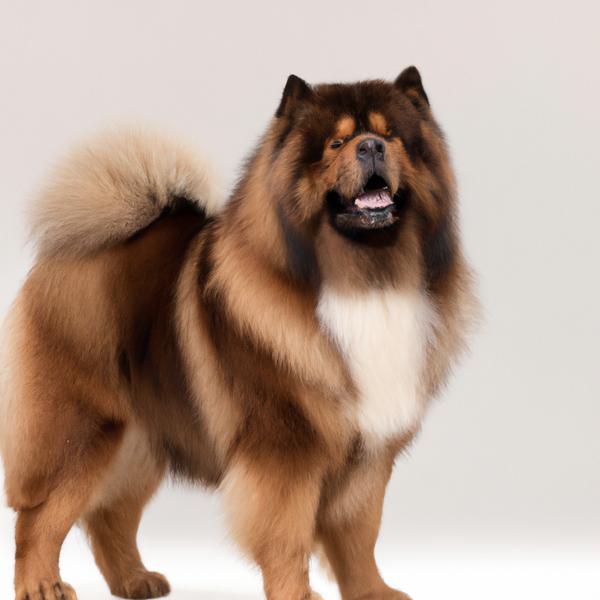
Great Keeshees
Kuchi vs Great Keeshees
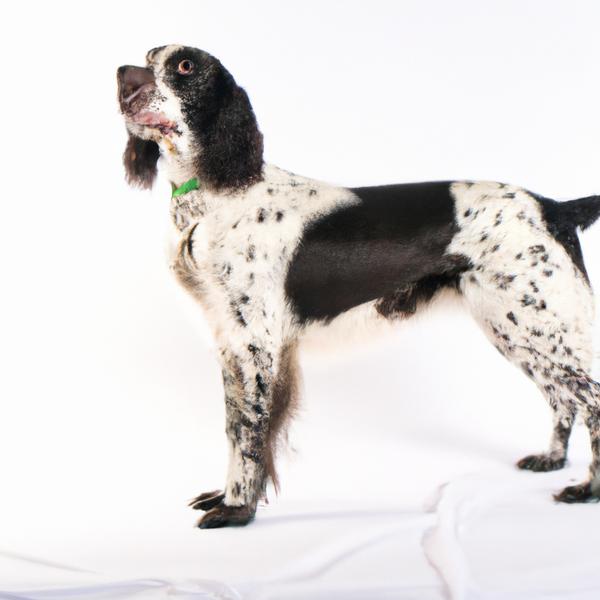
English Spanador
Kuchi vs English Spanador
